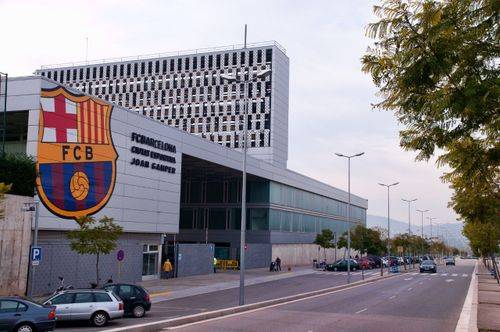"To What Extent Do Academies Help in Football (Soccer) Development?"
---
To What Extent Do Academies Help in Football Development?
Football academies have become the corner stone of player development across the globe. From grassroots small town setups to elite establishments like La Masia (Barcelona), Clairefontaine (France), and Ajax's globally renowned youth system, the academies are designed to discover, develop, and mold raw talent into elite professionals. But do they actually enhance the sport as much as everyone makes them out to be? While academies offer a structured means of achieving greatness, their effectiveness and limitations lie on a number of sporting, economic, and social factors.
Structured Development and Early Identification
One of the greatest things about football academies is that they can provide well-organized training environments. Kids are spotted at a young age and placed in systems that not just transfer technical skill but tactical awareness, organization, and physique. This is a major advance from street-level football that lacks resources or permanent teaching.
At elite academies, players get exposure to the best coaches, sports science, nutrition, and psychological counseling. The earlier a player gets exposed to an environment like that, the greater his chances of becoming skilled at the basics of the game. The majority of today's world stars — Lionel Messi, Kylian Mbappé, Marcus Rashford — are products of elite academies that identified their talent early and invested in them.
Professional Pathways and Opportunities
Academies are direct portals to professional clubs. In Spain, England, and Germany, clubs rely considerably on their youth systems to feed the first team or the transfer market. It happens that some homegrown products have gone to lead their clubs and national sides, providing identity and continuity.
On top of that, academies present life-altering experience for poverty-stricken youths. Scholarships, education, housing, and exposure to scouting agents present opportunities for success where otherwise there were none. To many young Africans, South Americans, and Asians, playing professionally as an academy player is less a career choice — it is a way of breaking the chains of poverty.
Challenges and Limitations
Although academies have their merits, they are not without criticism. Firstly, not all academies maintain high standards. Some are more interested in making money than in developing players, and profit comes before talent development. In less-regulated environments, young players can be exploited or discarded if they do not live up to expectations.
Second, the pressure to succeed is all-consuming. Young players are often removed from their families early on and inserted into highly competitive systems where only a few individuals ever make it to the top. The psychological effects of not making it can be severe, with many players being forced out of the system with no future ahead of them.
There has also been increasing debate as to whether academies stifle creativity or not. Some people are of the opinion that rigorous systems and overcoaching can stifle natural ability, turning players into robotic sports people rather than creative people. This is most often witnessed in countries where disciplined tactics are prioritized over improvisation.
Global Inequality in Academy Access
While academies are prevalent in Europe and South America, few countries have the infrastructure or investment to run successful youth systems. This imbalance creates an uneven playing surface for global football. Some nations export their brightest players at an early age, but this seems to drain talent that can be used to construct local leagues and national teams.
Conclusion
Academies are the key to football's future. They introduce order, resources, and a means to a professional career for tens of thousands of young players. Success, however, depends on quality, integrity, and accessibility. While high-level academies produce superstars and lifetime careers, the system as a whole must be reshaped to balance the game's interests with the players' interests. Ultimately, academies are not an infallible formula for success — but properly done, they remain one of football's most powerful development tools.
---
Please don't hesitate to let me know if you'd like the following changed to a specific region, e.g. emphasizing African or European academies, or rephrased for a more academic or journalistic readership.


